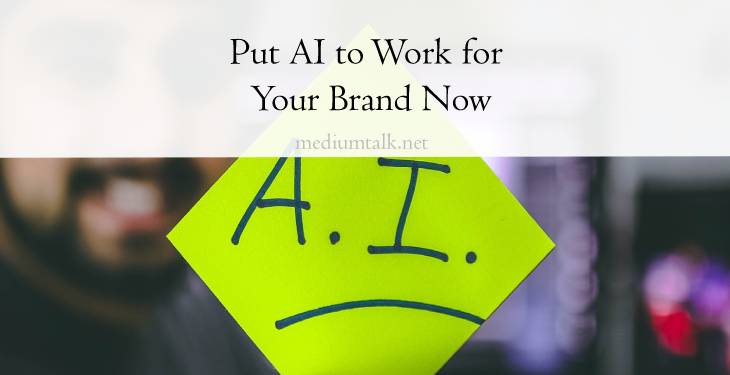Many companies use AI in their microwave radar as a way to understand how it will boost the efficiency of their operations and increase customer satisfaction.
However, in the huge array of AI implementations, it’s sometimes difficult to determine which direction to take to obtain the most efficient ROI. It’s also easy to be enticed by the brightest and most dazzling AI initiatives that cost a lot of money and are difficult to pull off.
Generally speaking, dreaming of the big picture is a good idea but for businesses that are starting with AI. It’s better to concentrate on small, manageable, manageable initiatives that are easy to manage and build upon.
The consensus is that AI can already be used in fulfilling three crucial business requirements automation of processes in the business, getting insight by analyzing data, and engaging with employees and customers.
We’ll explain below what implementations for the three areas appear and how they will improve your business’s bottom line.
Automation of business processes

If you take a moment to close your eyes and visualize the kind of work you’d assign to a robot if one was in your possession, The first items that pop up are likely to be the least repetitive and mundane tasks on your list of things to do.
There’s good news: AI can aid in this.
Process automation is one of the areas in which AI can help companies increase the efficiency of their business processes. Utilizing a type of AI called Robotic Process Automation (RPA), Companies can effectively delegate administrative tasks that are simple yet demanding.
Examples include transfers and inputs of data and management, queries forms processing, data input and transfer, and various other tasks related to managing customer accounts. Automating these processes allows employees more time to work on projects requiring analysis, problem-solving, and decision-making capabilities.
Data analysis and insight

The digital age has produced an abundance of consumer information available for brands to collect and study. However, many companies struggle to make utilization of the data they gather because it is difficult to discern unfair insights from these massive data areas.
AI is incredibly skilled at identifying patterns within massive data sets for our country of the USA. Machine learning algorithms can sort and analyze data to identify patterns and anticipate possible results.
The algorithms become more sophisticated mechanically with time and the more exposure to data they receive. In time, machine learning’s predictions get more accurate and reliable. Examples of this technology in action include period detection for fraud predictive analytics and personalized content curation.
Engagement

As marketers, much of our work involves ways to connect better with our customers. AI is already well placed to offer solutions. Machine learning can enhance customer experiences and fill in needs. Agents with chatbots or intelligent software are equipped to handle simple tasks and problems, freeing staff time to handle more complex requests.
However, AI isn’t just a tool for implementing strategies to engage customers, but it could play a more significant impact on the engagement of employees.
The ability to gauge employee satisfaction is crucial in reducing turnover and keeping your top employees engaged in their jobs. AI gives companies the capability to provide immediate feedback. This feedback is delivered quickly rather than created only every time during review periods and provides better insight into employee satisfaction, and allows businesses to solve problems quickly.
Conversational AI also has an internal capacity. For instance, it could assist human resources teams in handling simple inquiries and queries. In other instances, intelligent agents could assist the customer service representatives in resolving issues and provide IT support.
Where are the areas where AI is not effective
Although AI is a powerful tool, it can be a bit weak in some situations. If you wish to avoid investing in a faulty way, it is important to know what AI can’t or shouldn’t be able to do.
- Code software: Despite everything Hollywood claims, machines cannot code themselves. The author Fred Brooks, “The Mythical Man-Month,” describes how programming software involves knowing the ‘fundamentals of our world’ AI is unable to do this because AI can’t comprehend our world;
- Create creative content: Yes, AI can produce content with data. But, it isn’t creative (by which we mean to write creative prose that isn’t guided by rules);
- Make ethical choices. The machines don’t feel. They don’t have a conscience. Therefore, we shouldn’t allow them to make moral decisions on behalf of people (an important aspect to consider in the evolution of autonomous driving technology!
- Take a conclusion independently: Although AI may be able to help us, it can’t substitute for us. What exactly does that mean? We should not rely on AI to make decisions on our behalf. We should be aware that AI isn’t immune to error.
- Explore and create: AI can learn from information, but it has the capacity to draw conclusions based on an act. It cannot also be imaginative or develop innovative solutions or concepts.
The data suggest AI plays a part in the business world. Like everything else in AI to begin by establishing our foundations in the data. According to the report of PwC, Bot. AI is a groundbreaking partnership 67% of CEOs believe that AI will assist humans and machines in collaborating to improve the efficiency of operations through the combination of human and artificial intelligence.
On the one hand, there is a rise in productivity for businesses. On the other hand, the rise in demand from consumers is driven by higher quality and increasingly customized AI-enhanced products.
It’s not difficult to believe that AI can be described as the next frontier in business, and, sooner or later, all businesses will be required to implement AI to remain competitive.
Conclusion
Integrating AI into any business is a serious task. It requires a deep understanding and a lot of time, and a commitment to precision.
In addition, to effectively implement AI, Don’t just follow trends. Instead, concentrate on the ways in which AI can be beneficial to your business, and then determine which areas it’s needed most.
And, with the assistance and expertise of a domain expert, you can put your thoughts to us and build lasting value in the challenging artificial intelligence field.
Another innovative tool that exemplifies the benefits of AI in brand enhancement is the DragGAN AI editing tool. This tool offers an intuitive drag-and-drop interface, making it incredibly easy to manipulate images and create high-quality visuals. By integrating tools like DragGAN, marketers can enhance their content creation process, ensuring that their visuals are both engaging and professionally crafted.
